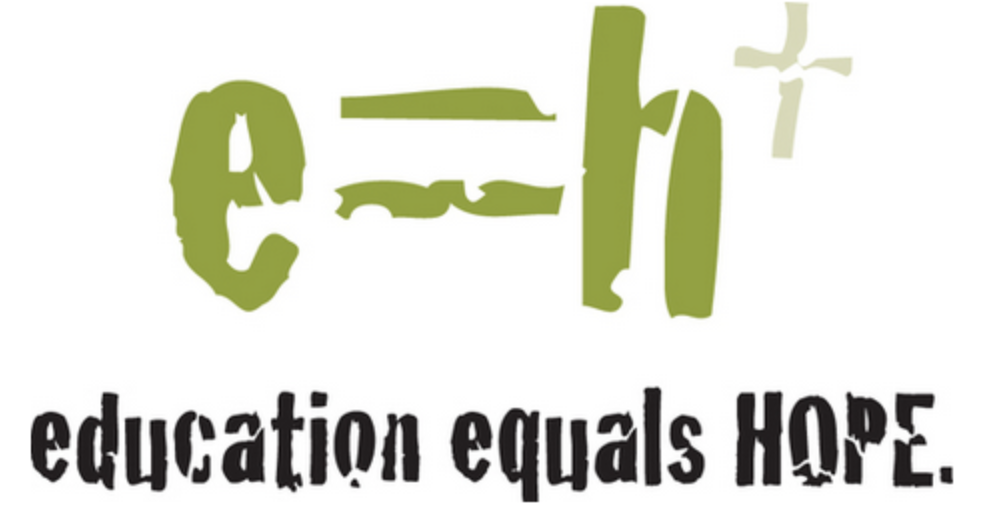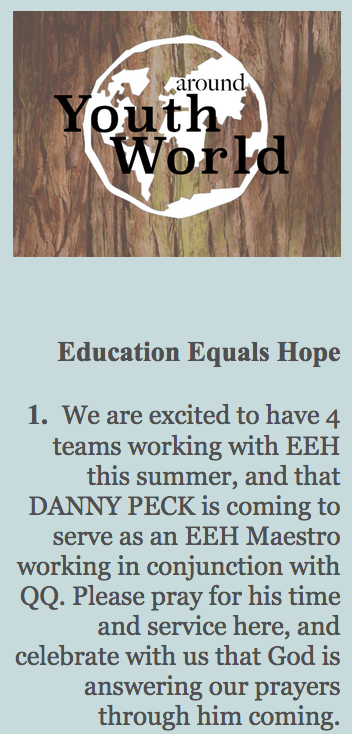Since Saturday night Roberto and I have been hosting a team from South Carolina. It’s a fascinating group because it’s centered around a couple who is getting married on Tuesday. Part of the team only thought they were coming on a mission team and didn’t even know there would be a wedding while they were here. Part of the group only thought they were coming for the wedding.
Having worked so long with an organization that focuses so much on doing short term missions well, there are some things about this that I struggle with. But this group has had particularly fresh eyes for the things around them. I think little-to-no preparation on the part of the team members was in this case better than bad preparation, because they simply didn’t have time to have any preconceived notions. This struck me the first time when a 50-something team member said during our orientation at Carmen Bajo “This place just breaks my heart.”
I initially wanted to push back on that, to tell him “no, this is a place that’s full of joy,” to argue with him what a difference it makes in the community. Knowing that I have served at Carmen Bajo for almost 10 years and whatever was going to come out of my mouth was going to be an emotional response, I held my tongue. And I’m glad I did, because while all those thing I thought are true, that doesn’t mean we can’t all (myself included) be heartbroken at the underlying need for a place like Iglesia Carmen Bajo and it’s school and social project to even exist.
We heard Pastor Fabian’s story of being called to the neighborhood. I’ve heard it many times before in orientations or at dinners at his house. We heard testimonies from church members and stories about the students from the staff. Most of those stories were things I’ve heard before. Tough, terrible stories of loss and hardship, but familiar problems in that area just with new names and faces to go with them. Those stories are shared so we can give glory to God for what he has done in the midst of it all. For healing and wholeness found in His Church, for hope that has come through educational opportunities, for a generation that is giving back to their community because of grace and mercy encountered through people sharing love, and for there being enough resources to solve social and economic problems because basic needs like food are being met through the compassion of teams and a church and a people who care.
But the relief that comes through that place doesn’t mean all the problems are gone. There is still endemic abuse and neglect in the neighborhood. We met a woman who is fighting to give four of her sons with disabilities a better life, but whose son’s disabilities were caused by fetal alcohol syndrome. There was a kindergartener who is happy and healthy and learning, whose education is funded through the scholarship program and whose lunch is funded by Compassion International, but who has to walk an hour and a half each way, each day between his home and Carmen Bajo. A kindergartener.
There are times when I’m listening to a story or translating on a home visit when I just sort of turn off my heart and only use my head. I change the words from Spanish to English and regurgitate them for the team so they get the information. But I do it with a certain sterility, not letting the emotion effect me in the moment. I become the task-oriented North American with data to get across rather than the missionary, the minister, the brother in Christ who should be broken-hearted by what I see.
And what I see is injustice. Brokenness. Sin. Those things are why we need the church. We we need missionaries. Why I’m here at all. I’m very rarely shocked at a story I hear in his place anymore. But familiar as this brokenness is, and optimistic as I hope I continue to be about all that is going on to fix it, my prayer is that i will continue to be as broken-hearted about it all now as I was the first time I came here.


